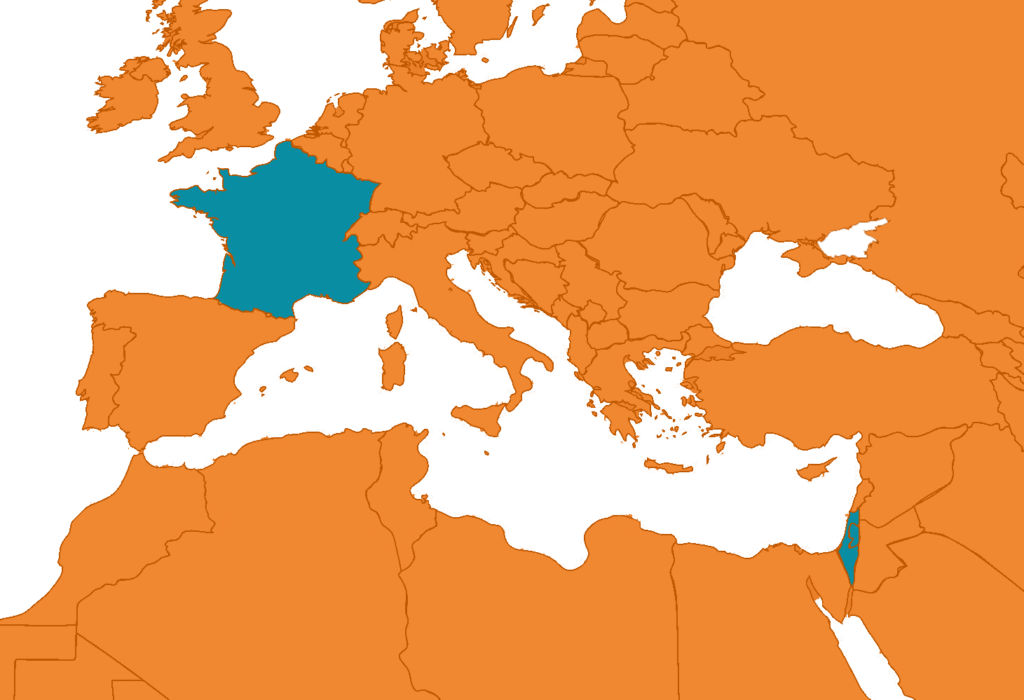our field

The Land
After several days of training in France, the team will travel to Israel. Israel is a small country in the Middle East, located on a plateau in the Judean Mountains, and is about the size of New Jersey. Israel is situated on the Southeastern coasts of the Mediterranean Sea and the northern coasts of the Red Sea, bordered by Lebanon in the north, Syria in the northeast, Jordan in the east, Egypt in the southwest; the Palestinian territories (West Bank and Gaza Strip) in the east and west. The nation of Israel—with a population of more than 9 million people, most of them Jewish—has many important archaeological and religious sites considered sacred by Jews, Muslims, and Christians alike, and a complex history with periods of peace and conflict. Jerusalem – the capital and largest city of Israel. Jerusalem is regarded as a sacred city by Christians, Jews, and Muslims. Tel Aviv, located in central Israel, is the country’s economic and technological center.
The People
Jews constitute about three-fourths of the total population of Israel. More than one-fifth of the population consists of Arabs, almost all of whom are Palestinians from Sunni Muslim (roughly three-fourths) or Christian communities. Druze and other ethnic Arabs who do not consider themselves Palestinians make up a small fraction of the total population.
The Jewish population is diverse. Jews from eastern and western Europe, the Middle East and North Africa, Central Asia, North America, and Latin America have been immigrating to this area since the late 19th century. Differing in ethnic origin and culture, they brought with them languages and customs from a variety of countries. The Jewish community today includes survivors of the Holocaust, offspring of those survivors, and émigrés escaping anti-Semitism. The revival of Hebrew as a common language and a strong Israeli national consciousness have facilitated the assimilation of newcomers to Israel but have not completely eradicated native ethnicities. For example, religious Jews immigrating to Israel generally continue to pray in synagogues established by their respective communities.
The Missions Work
Men and women respond to Jesus the same way today. Some in Israel have accepted him, and some have rejected him—but many have never heard the truth about him. And so, like Simeon and Anna, we must speak of him to those who are “waiting for the redemption of Jerusalem” (Luke 2:38).
The Jewish population of Israel has historically rejected Christian influence because of centuries of atrocities committed against the Jewish people by those claiming beliefs under the broad umbrella of Christianity. While most Jewish people are still hostile to Christianity, many are turning to Christ as their Messiah and Savior, although it is not easy for them. Jewish Christians are often rejected by their family and friends and seen as traitors to Judaism.
for team Israel
Keep in Touch
Team members can’t always make phone calls or send e-mails while on the mission field. The best way to stay in touch with us is to subscribe for our team-specific e-mail updates.